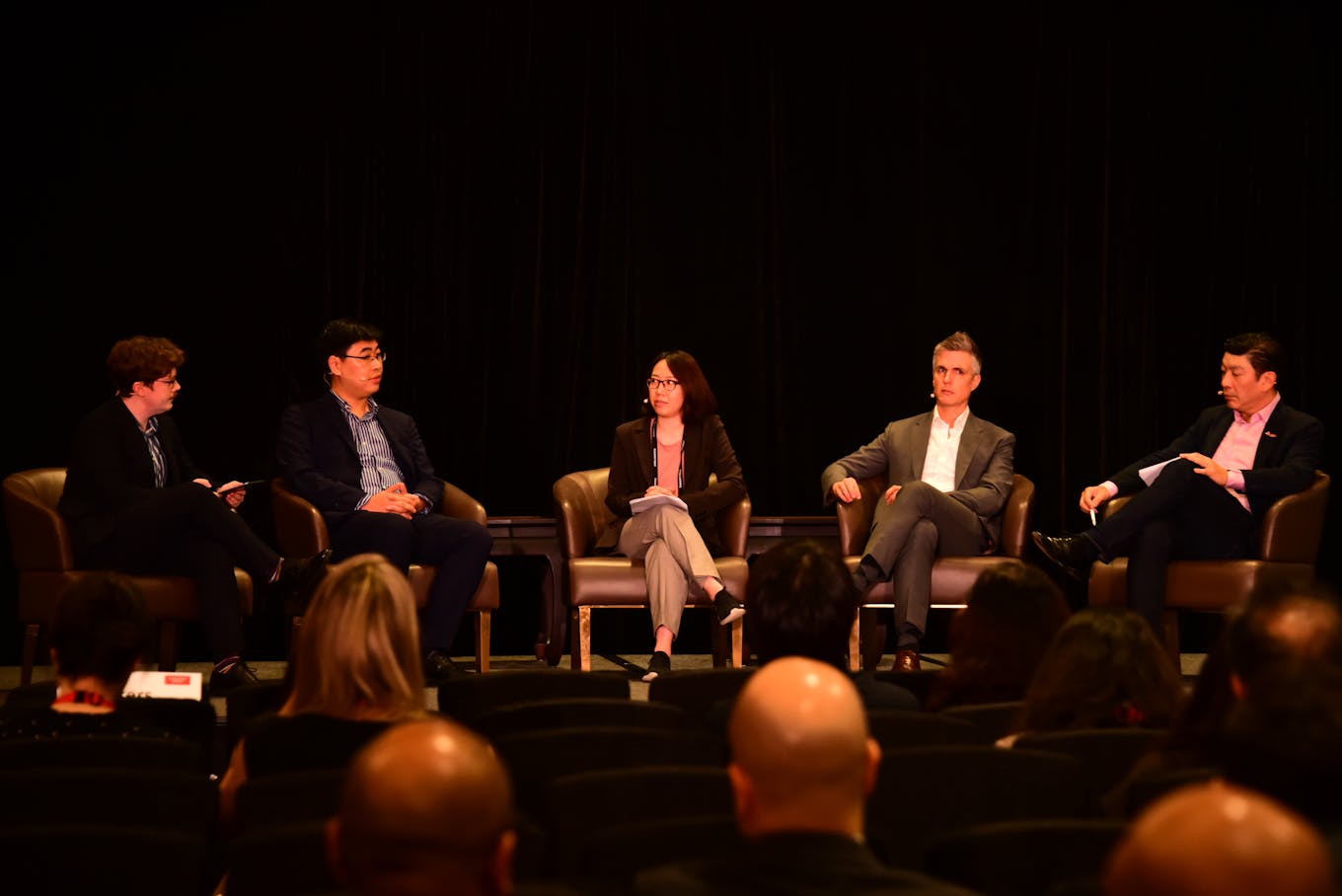The chief sustainability officer of Southeast Asia’s largest bank DBS has expressed surprise that a climate investor group holding US$11 trillion worth of assets under management is putting out a rulebook banning members from using carbon removal in their green plans up until 2030.
To continue reading, subscribe to Eco‑Business.
There's something for everyone. We offer a range of subscription plans.
- Access our stories and receive our Insights Weekly newsletter with the free EB Member plan.
- Unlock unlimited access to our content and archive with EB Circle.
- Publish your content with EB Premium.
Helge Muenkel, sustainability chief of Singapore bank DBS, said on Tuesday (7 February) that carbon removal should be “part and parcel” of business sustainability plans, as long as they are complemented by other emissions-cutting actions as part of a science-informed decarbonisation pathway.
“I was a little bit surprised, because in any scientific report you read, you [see] that we need carbon removal as part of our overall [decarbonisation] drive,” Muenkel said, when commenting on a ruling by the United Nations-backed Net-Zero Asset Owner Alliance (NZAOA) to ban such schemes last week.

A panel on carbon markets at Economist Impact’s Sustainability Week Asia 2023. From left: Mike Bird, Asia business and finance editor, The Economist; Hao Liang, co-director, Singapore Green Finance Centre; Mei Zi Tan, manager, international research and projects, Carbon Market Institute; Helge Muenkel, chief sustainability officer, DBS; John Leung, director, Southeast Asia & Oceania, CDP. Image: Economist Impact.
Muenkel was speaking at a panel session at the Economist Impact’s Sustainability Week Asia conference.
Carbon removal projects range from highly technical and expensive machines sucking carbon dioxide out of thin air, to more established practices of planting more trees or better managing forests that would soon be cut down. Firms can buy carbon credits from such projects to offset their own emissions when tabulating their climate impact.
In April last year, scientists contributing to the Intergovernmental Panel for Climate Change (IPCC) report have said that it is practically impossible to keep global warming to safe levels without a large scaling-up of carbon removal projects.
“
Removing carbon credits will be, in my opinion, almost absurd.
Helge Muenkel, chief sustainability officer, DBS Bank
But the fear is that companies focus too much on funding such projects for carbon offsetting and ignore cleaning up their own operations and supply chains. Carbon markets have been especially rattled by a recent article that alleged large-scale overissuance of carbon credits by UK newspaper The Guardian.
The solution is holding companies to a hierarchy of actions that start with preventing and reducing emissions, before offsetting the rest, Muenkel said, adding that all possible climate solutions should remain on the table due to “dramatic sustainability challenges” the world faces.
“Removing carbon credits will be, in my opinion, almost absurd,” he said.
Muenkel told Eco-Business that the impact of NZAOA’s decision on the fast-growing voluntary carbon market, worth US$2 billion in 2021, will also depend on how other stakeholders react.
“I’m not yet convinced everybody will jump on the bandwagon,” Muenkel said.
The NZAOA is part of a larger umbrella of financial institutions, the Glasgow Financial Alliance for Net Zero, representing US$150 trillion in private capital and aiming to get their portfolios to carbon neutrality by 2050. DBS, the largest bank in Southeast Asia, is part of the larger coalition, but not NZAOA specifically.
John Leung, director of Southeast Asia and Oceania at environmental non-profit CDP, said that private money, which at least in the United States far exceeds public finance, needs to go to carbon removal projects. Leung, speaking alongside Muenkel on the same panel, agreed that carbon removal needs to be part of climate solutions.
Level playing field
Industry experts at the conference said carbon markets are being held back by confusion over what counts as good carbon projects, citing The Guardian’s allegations of bloated carbon credits signed off by major carbon project certifier Verra.
The episode is an acknowledgement of issues that need to be resolved, Muenkel said. Leong added that trust in the carbon market requires the creation of “universally acceptable” quality standards. There are currently such efforts, most notably through the Integrity Council for the Voluntary Carbon Market, a market coalition.
Quality aside, big variances in carbon prices across jurisdictions could allow polluting industries to move their factories around to avoid financial penalty, speakers noted.
In Southeast Asia, most countries do not price carbon, but wealthy Singapore wants to increase its carbon tax at least 10 times by 2030, from the current US$3.70 per tonne. Indonesia’s delayed carbon tax system is to start at about US$2.10.
The main challenge in Asia is differing perceptions to the need for carbon pricing, and big variances in level of development, according to Hao Liang, co-director of think-tank Singapore Green Finance Centre.
Standardising disclosure requirements and pricing in financed emissions could help, he said, pointing to the European Union’s planned carbon border tax that could see payments on pollutive imports, including from jurisdictions without carbon pricing, starting end-2023.
Muenkel agreed that larger and more coordinated compliance carbon markets could help with standardisation, but noted that Western countries have a greater duty to deal with climate change based on historical emissions.
He added he had a “sneaky suspicion” that “there is a trade policy element” to the EU’s carbon border charge. Critics have previously accused the European bloc of protectionism over the tariff.

















